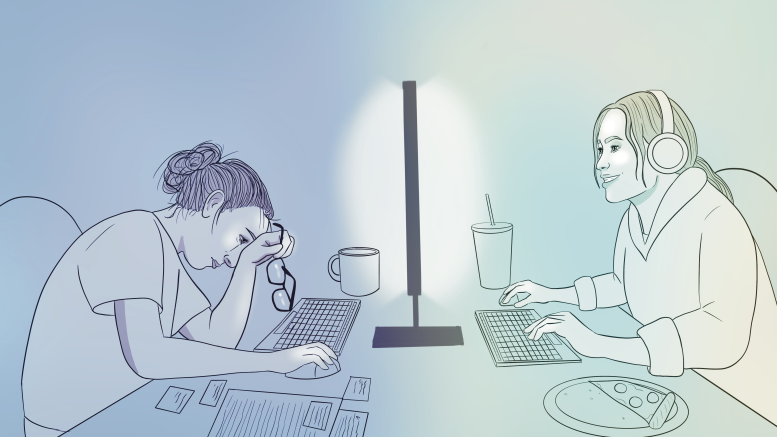2023 was great for gamers. An incredible amount of fantastic new video games were released, like Baldur’s Gate 3, The Legend of Zelda: Tears of the Kingdom and far too many more to list. Many have called it the best year for video games in over a decade.
However, as several media commentators have already pointed out, the year was also a terrible one for the people who make video games. Over 10,000 people were estimated to have been laid off in the video game industry over the past year, about 10 times the amount of layoffs in 2022.
For instance, at Epic Games, the company behind free-to-play megahit Fortnite, CEO Tim Sweeney announced the layoffs of over 800 people — 16 per cent of the company’s staff — in September of last year, proving that this Sweeney doesn’t need to be the demon-barber of Fleet Street to make brutal cuts.
Sweeney essentially admitted that mismanagement necessitated the layoffs, explaining in an email to staff that they had to happen because, “for a while now, we’ve been spending way more money than we earn.”
In another case of executive-level bungling hurting employees, Bungie, the developer of Destiny 2 and the upcoming Marathon, laid off around 100 employees last October after missing its revenue projections by 45 per cent. It’s hard to see executives of a company using estimates so far off-base from reality as anything but managerial incompetence.
While 2023 was extraordinarily bleak for the video game job market, the industry has been a cesspool of horrendous management and poor labour conditions for a long time. Widespread layoffs are only the latest issue bubbling up to its surface.
Recent years have brought increased media attention to a toxic element of the industry known as “crunch,” game development periods where developers work long overtime hours, often without proper compensation. In the past, some games workers have reported standard 100-hour work weeks during crunch.
And then there’s the industry’s well-known, widespread issue with sexism and harassment toward women working in games. Over the past few years, women at numerous video game companies have come forward with stories of workplace harassment and abuse. Several companies have consequently been sued, some settling out of court for millions of dollars. Former Activision Blizzard CEO Bobby Kotick was even accused of threatening to have his assistant killed, which he then claimed was a joke.
Harassment and gender-based discrimination have been so prevalent in the space that Jason Schreier, a games journalist known for his reporting on labour issues within the industry, wrote, “for other companies that haven’t yet been publicly named or sued, the question may not be ‘if’ but ‘when.’”
All of this has clearly affected the workers who make video games.
A 2023 survey of hundreds of video game developers conducted by the International Alliance of Theatrical Stage Employees (IATSE) found less than half of all respondents had been in the industry for longer than seven years, a statistic the survey describes as illustrative of the high rates of burnout in the video game space.
In the same survey, only 42.9 per cent of respondents said they felt working in the video game industry is sustainable over the long term.
While there have been reports that companies in the video game industry are trying to address crunch and harassment, the issues are still very present. The results of the IATSE survey listed crunch/overtime pay and safety/anti-harassment measures as the second and third most important things that need to improve within the industry, respectively, both only beaten by the need to improve pay.
These issues, like many of the layoffs from this past year, ultimately fall at the feet of industry management. At best, pervasive harassment and unpaid or underpaid overtime occur when those in positions of power are incredibly incompetent. Management ignores or, at worst, actively enables and perpetuates these problems.
Rather than hoping that companies solve these issues themselves, the video game industry needs to unionize. While unions don’t magically fix all the issues in a workplace, they can improve them by standing up to management on behalf of workers and demanding better pay and conditions through bargaining and labour actions like strikes.
I wrote about the actors’ and writers’ strikes in Hollywood last summer, and the results of those movements show how unions and organized labour action can make a difference for workers in the entertainment industry. Both the writers’ and actors’ unions won pay increases and employment safeguards for their members, including labour protections against the use of artificial intelligence, something that game developers have their own concerns about.
The good news is that, despite the absence of an overarching union for game workers just yet, there has been a push for unionization in the video game industry in recent years. The Hollywood strikes benefited from strong public support, which may have helped them in their negotiations. If gamers want talented developers to stay in the industry and make good games, they should support such action in the video game industry if it occurs.
So, while I’d love to see more great games released this year, I also want to see the continuation of a strong unionization and labour movement in the games industry. Hopefully, that kind of action can make future years great for both gamers and game developers alike.



